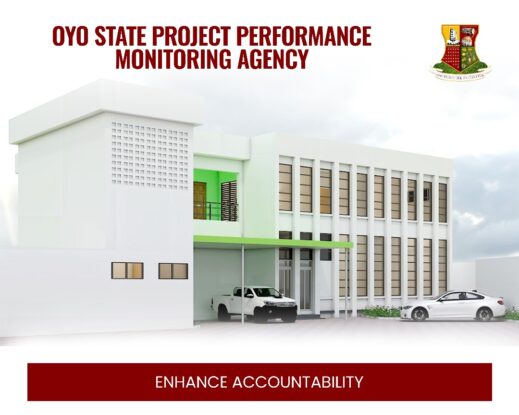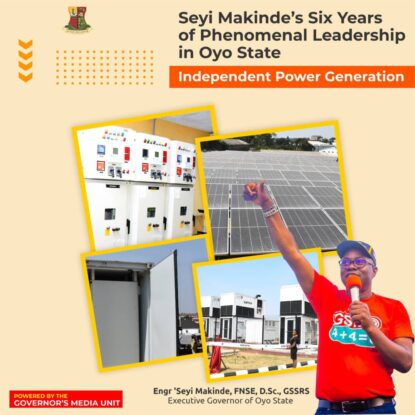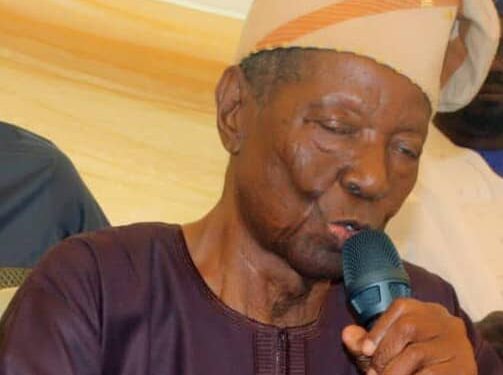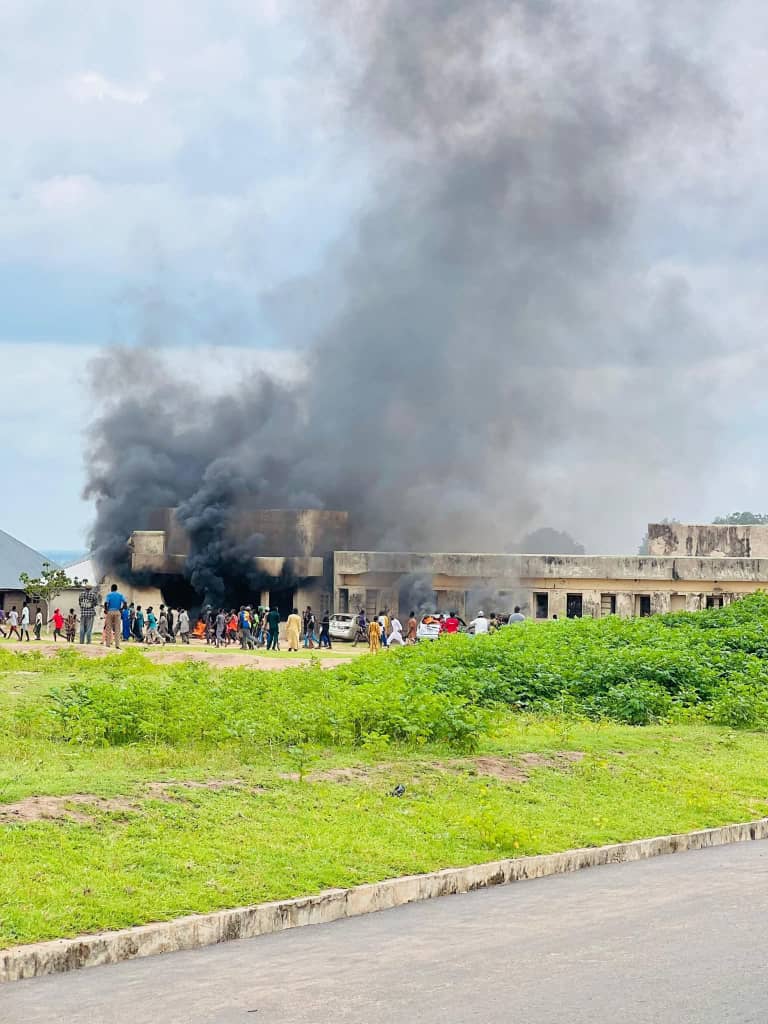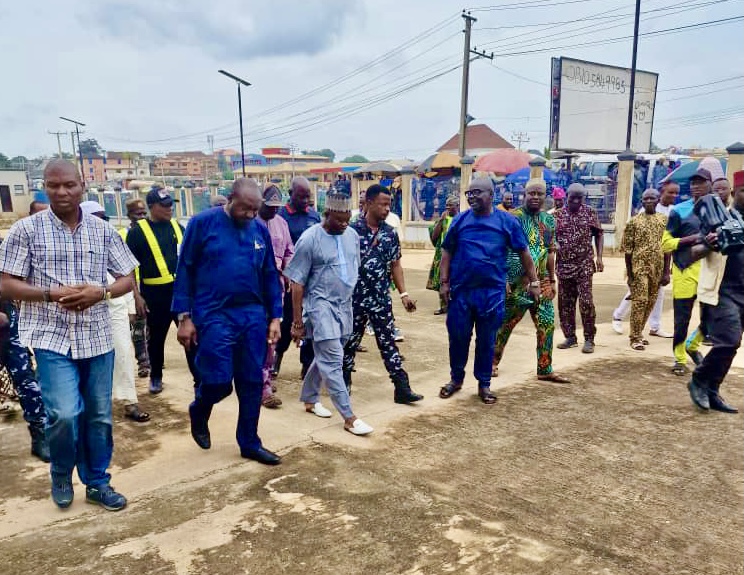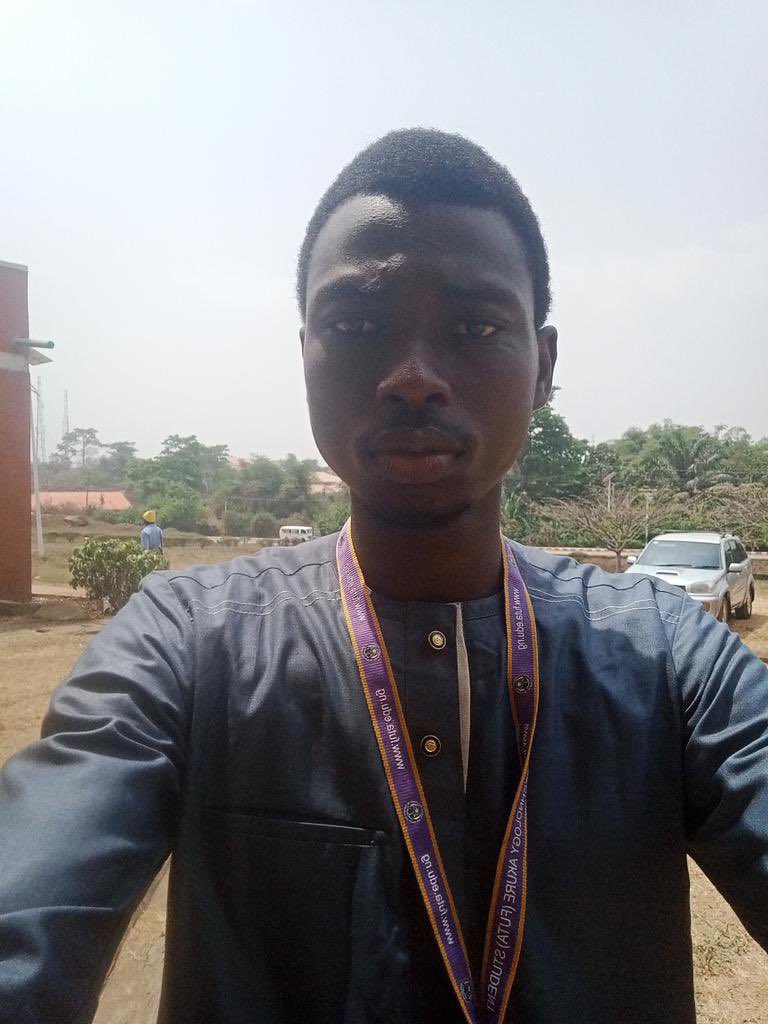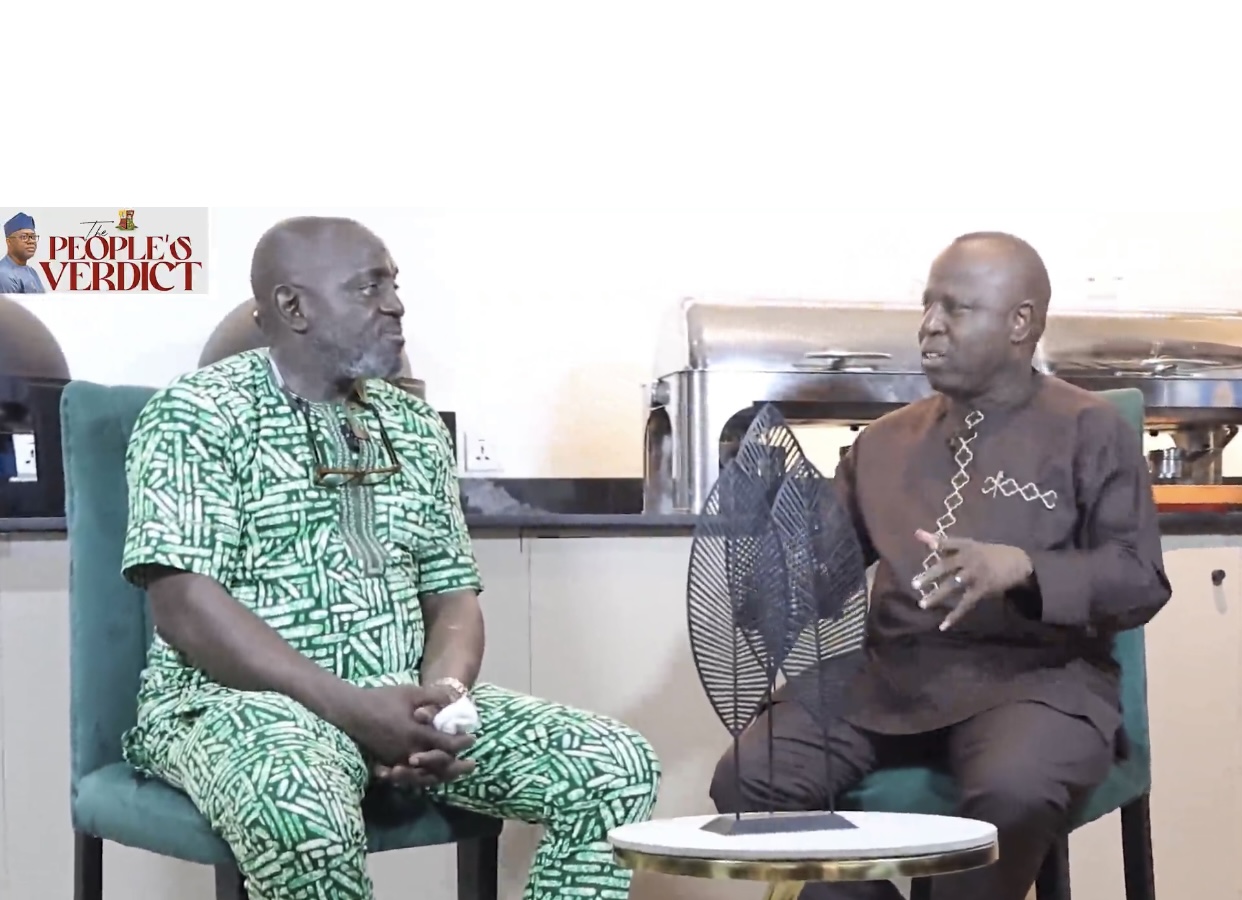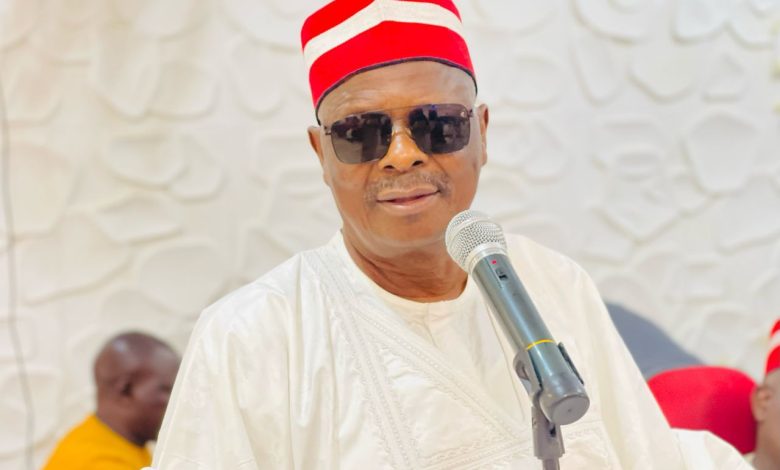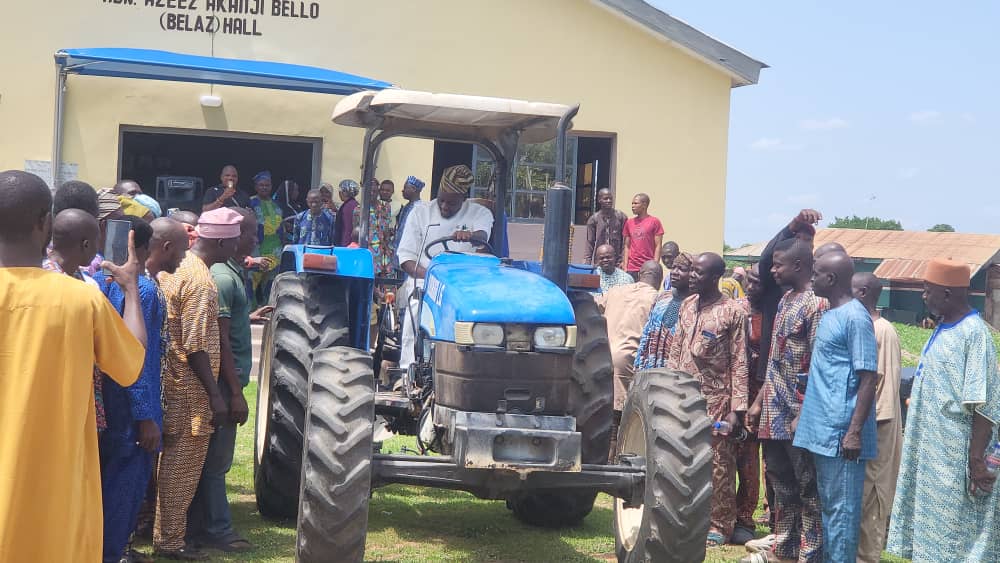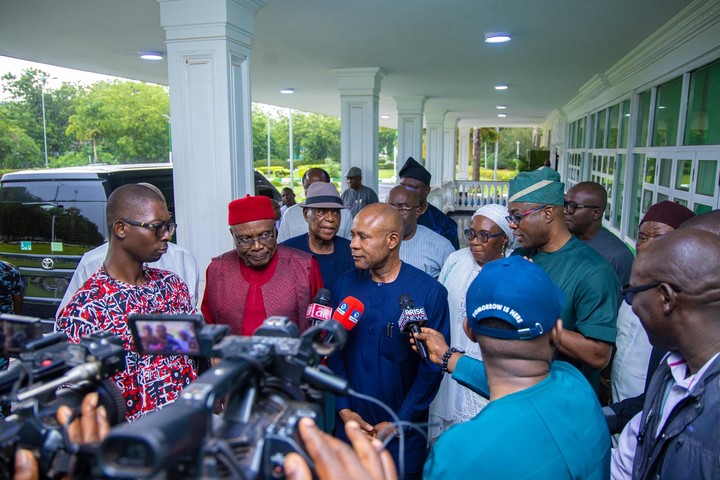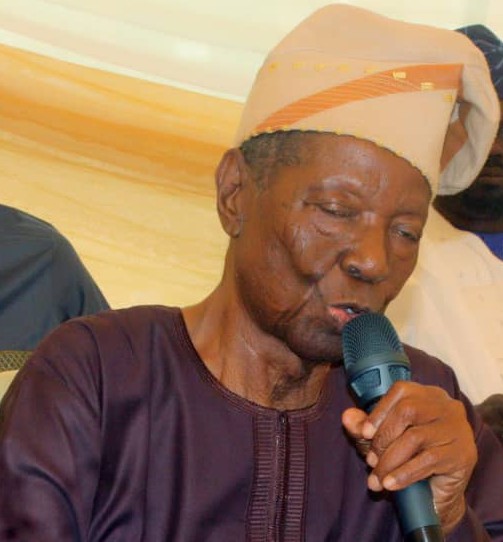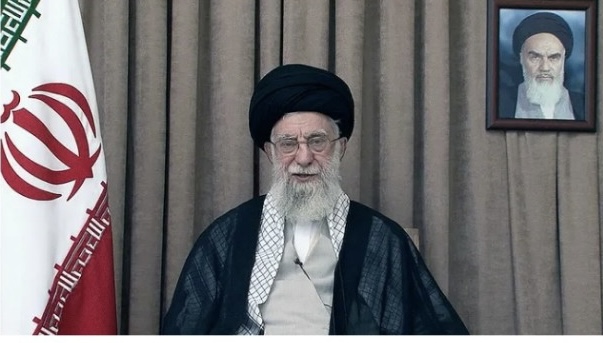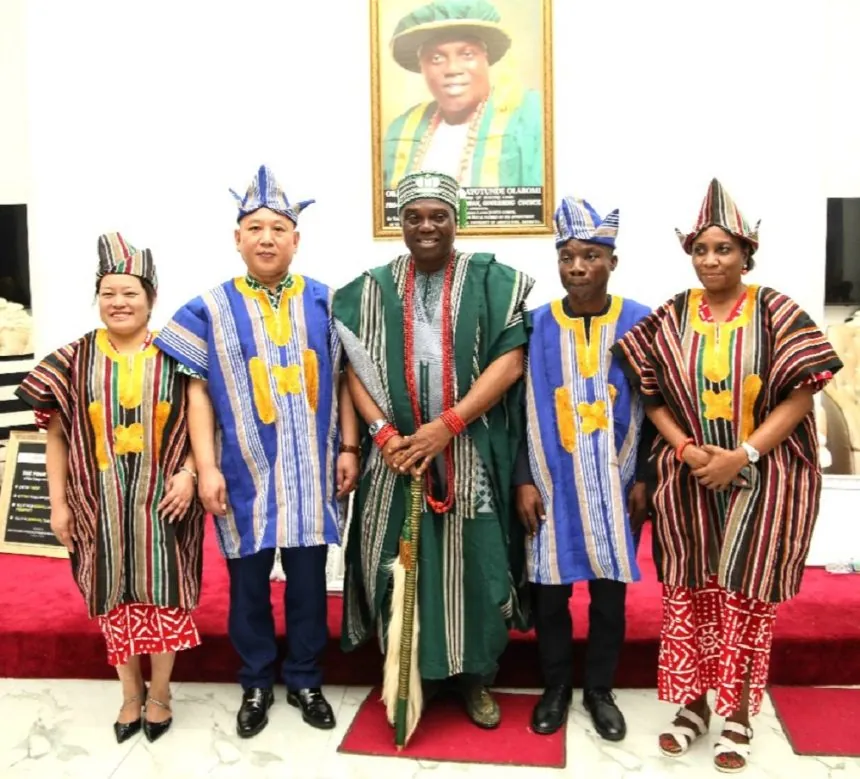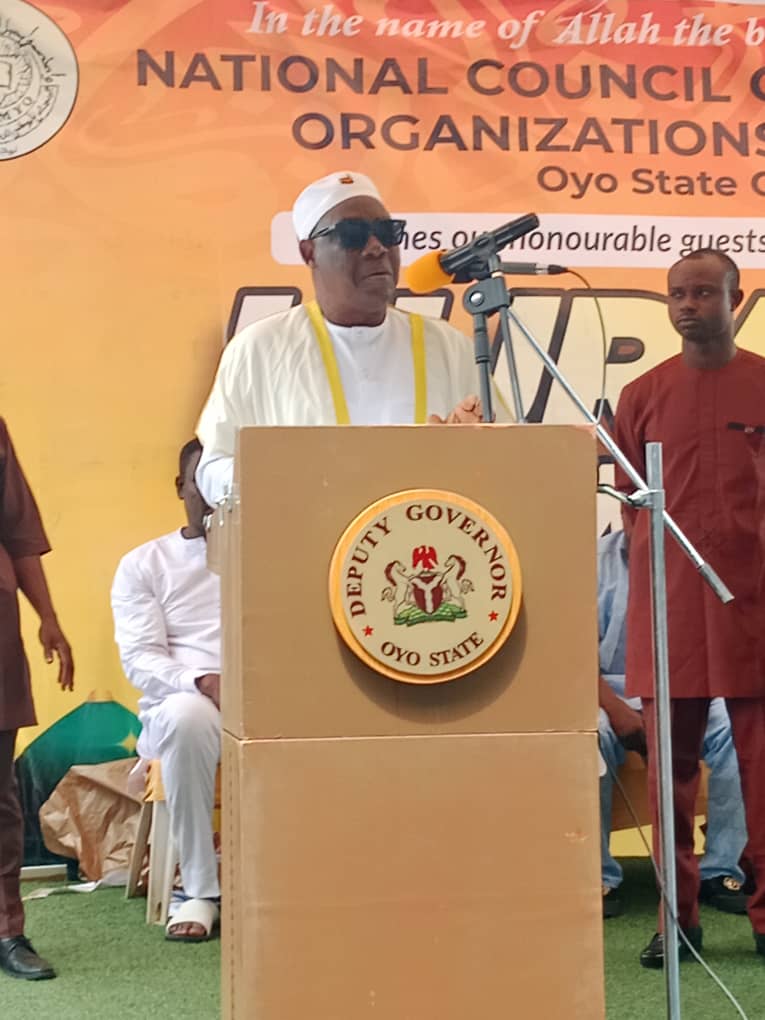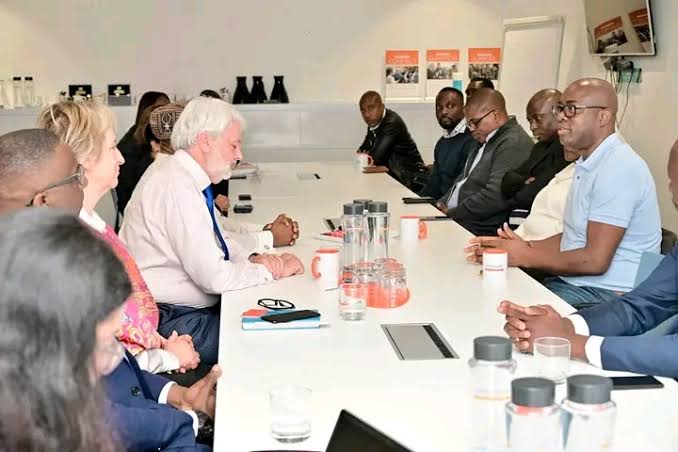London Business Summit: Follow the Data by Ọmọọbá Ádésọlá Kọláwọlé (mnitp)
An annotation of GSM’s Pitch to Global Investors at the debut edition of the Oyo State International Business Summit (OYSIBS 2023) in London.
While still basking in the euphoria of his unprecedented victory at the March 25, 2023 Gubernatorial election where he won with a lanslide margin for a secod term in office as Executive Governor of Oyo State, our own GSM, His Excellency, Engr. Seyi Makinde left the shores of Nigeria for a convergence in London with global investors looking at the possibilities of investing in Nigeria and Oyo State in particular.
So on Friday, May 19, 2023, armed with the bouquet of data and requisite information that will be strategically useful to attract foreign direct investments into the Pacesetter State, GSM opened the books to a horde of investors from different sectors of the global economy sitted at the venue at the Millennium Gloucester Hotel, London Kensington.
The maiden edition of the Oyo State International Business Summit had “Accessing the Pioneer Advantage to Sustainable Investments in Oyo State” as its theme however, the Governor in his presentation choose to speak on “Your All Access Card to Sustainable Investments in Oyo State – Follow the Data”.
Opening with the vitals, GSM told his audience that “Oyo State has a land mass of twenty-eight thousand four hundred and fifty-four (28,454) square kilometres. To put that in perspective, it’s about 18 times the size of London.”
Oyo has an estimated population of over 8 million. Of this population, about 60% are between the ages of 16 and 54 which indicates that the State has a large working population. And so, demographically speaking, the data shows that Oyo State is a ready investment market. Our landmass and population provide a comparative advantage that very few States in Nigeria have.
GSM was quick to mention that what puts Oyo above the rest is the economic data. And before enumerating these, he provided the context.
According to GSM, the World Bank in 2018 published one of its last annual Ease of Doing Business Reports for subnational Nigeria. In that report, he referenced that the bank used four key indicators to rate Oyo State. These are: Starting a Business; Dealing with Construction Permits; Registering Property and Enforcing Contracts.
According to the report, Oyo State scored average to above average in three of these indicators. These are: Starting a Business at about 76%; Dealing with Construction Permits at about 61% and Enforcing Contracts at about 53%. The score for Registering Property was quite low at just about 22%. Oyo State scored 53.41% in the Ease of Doing Business index overall.
According to GSM, “Looking at this data, it was clear that there was a lot of room for improvement in property registration. So, after we assumed office in 2019, we got to work. First, we built on the Certificate of Occupancy – C of O Made Easy Scheme, which our predecessors had tried to operationalise. Our goal was to ensure that properties could be registered in 60 days.”
He said “we achieved a measure of success in this regard leading to an expansion of the project. It was renamed C of O Redefined, and commercial entities were pulled into the mix. This moved the emphasis to the business community.”
GSM also talked about the deliberate effort his administration made by looking at the other indicators that would attract big businesses to Oyo State which prompted the Government to work on the regulatory environment.
He talked about the creation of the Oyo State Public Private Partnership Agency (OYSIPA). This agency he said is the one-stop shop for investment opportunities in Oyo State. Because some of the compliance regulations that businesses must adhere to are within the purview of the Federal Government and there are bureaucracies associated with government in Nigeria as a whole, it became imperative to have an agency that would serve as a vital link to all these agencies. And this is what OYSIPA does.
He mentioned the ongoing interface with the Presidential Enabling Business Environment Council (PEBEC) to implement the State Action on Business Enabling Reforms (SABER) Programme in the State. The PEBEC Secretariat and World Bank coordinate this project.
He told the audience that so far, PEBEC has released two Ease of Doing Business Reports. The first was published in 2021, and the second in 2023. PEBEC expanded the key indicators of Ease of Doing Business at a subnational level in Nigeria to include:
Infrastructure; Transparency and Accessibility to Information; Secure and Stable Environment; Regulatory Environment; Skills and Labour; and Economic Opportunity.
Based on these terms of reference, GSM remarked that Oyo State showed a 2-point improvement in perception by Micro, Small and Medium Enterprises (MSMEs) in land and property acquisition going from 2.88 to 4.88.
Added to this according to him is the fact that the current administration shortened the process of obtaining Certificates of Occupancy to 60 days. It also made it easier to pay taxes through the adoption of technology. Which implies that as at today, nobody needs to go to the agency to pay any bills in cash, it can be done online from anywhere in the world.
He noted that the indicator where Oyo State performed best is Skills and Labour. Though he admitted that Nigeria has been facing a skills crisis in the last two years, with so many middle-class people leaving the country, Oyo State has taken steps to ensure that education and skills acquisition are prioritised.
For example, he said in the last four years, the Oyo State Government have consistently maintained a 15-20% budgetary allocation to the Education sector. With increased funding to all levels of the Education sector, including the tertiary level, one of the three State-owned universities, the Ladoke Akintola University of Technology has been rated the best State-owned University in Nigeria for the past four years.
He equally noted that his administration have also prioritised skills acquisition in the sectors where it had comparative advantage. For example, as part of the Oyo State Government focus on agribusiness in the last four years, over 4,000 youths have been trained across the agribusiness value chain, and another 1,500 youths have passed through the “Start Them Early Program” (STEP), which trains young people aged 13-16 on various enterprises in the agribusiness value chain.
With these and other improvements done, the Oyo State Government has been able to create a conducive environment for the private sector to thrive. He mentioned that one of the factors that surveys revealed has played a key role in the decision-making process of MSMEs is the growing middle class in Oyo State.
According to him, MSMEs rated Oyo State 5.83 in New/Range of Customers. Of course, this is always an important factor. Oyo State does not only have a large working-class population, but they (the populace) also have spending power. He said his Government has ensured that about 8% of the working population who are government workers receive their salaries regularly and consistently in the last four years there has been an injection of ₦12 billion into the economy monthly.
GSM stated that through all efforts by the Oyo State Government in these past four years, the State now has a better economic standing among Nigerian States. It is on record that Oyo State is now one of the top five economies in Nigeria. The State now has a GDP of $8.67 billion in 2022. This is a growth of about 50% in 4 years. The number of enterprises within the state grew to 1,872,941 and Foreign Direct Investment valued at $65 million came into the State.
After laying the foundation for the investment conversation, GSM delved into questions that will be in the mind of investors listening to his exposition. The questions are:
What are the investment opportunities available in Oyo State? How can you, as an investor, benefit from these opportunities? And, what has the Oyo State Government done to ensure our incoming investors get the support they need?
To these questions, he highlighted the focal sectors. The include Agribusiness, Solid Minerals, Sustainable Energy and Tourism.
For AGRIBUSINESS, GSM stated that Oyo State has a comparative advantage in agribusiness with about 2.5 million hectares of arable land and a climate and soil type suitable for most agribusiness enterprises. Right now, the Oyo State Government is focused on building agribusiness industrial hubs. The evidence of this which is also a proof of concept is the Fasola Agribusiness Industrial Hub. He noted that some of the investors in the audience had already subscribed to the hub. The hubs will supports various agribusiness ventures in addition to livestock and crop production centres, warehouses for agro-logistics and more.
He also mentioned that work will start soon on Akufo, Eruwa and Ilora Farm Settlements to convert them to agribusiness industrial hubs. Partnerships in this area will involve building infrastructure that will make the location more business viable. For instance, to make the Fasola Agribusiness Industrial Hub accessible, the Oyo State Government is reconstructing the 34.85 km Oyo-Iseyin Road.
He said in the next few years, the Oyo State Government shall also be injecting $40 million into the livestock value chain through the World Bank-assisted Livestock Productivity & Resilience Support Project (L-PRES). This will ensure that investors get the infrastructural support required in livestock production.
For the SOLID MINERALS sector, he was quick to admit that it was one of three new entrants into the Oyo State investment portfolio. GSM said many people have asked how he intends to attract investments into the solid minerals sector, whereas all minerals belong to the Federal Government. His response was that the answer lies mainly in the Pacesetter Mineral Development Company (PMDC), a Special-Purpose Vehicle already used to acquire solid minerals titles. The Oyo State Government have exploration and mining titles. After surveying the areas covered by these titles, the Government created a database of minerals on those titles.
He categorically mentioned that Oyo State have deposits of Feldspar, Talc, Marble, Pyraiba, Gold, Tourmaline, Quartz, Beryl and Granite.
Another advantage in this sector according to GSM is that Oyo State now hosts the International Gemstone Market in Adan in Akinyele Local Government Area, Ibadan Zone. This collaboration between the Oyo State Government and the Federal Government shows how important the State is in the gemstone industry conversation.
On SUSTAINABLE ENERGY which is a not-so-new addition to the State’s investment portfolio. The GSM administration created the Oyo State Ministry of Energy and Mineral Resources in 2019 primarily to develop policies and programmes to help the State meet residents’ energy needs.
While the power sector was still mainly under the Exclusive List of the Constitution of the Federal Republic of Nigeria 1999 (as amended) and so under the Federal Government’s control, the Oyo State Government found a way of showing proof of concept for alternative energy sources to underserved communities. We built five mini-grids in various communities. At the same time, private investors have come on board to provide Energy-as-a-Service (EaaS) to 17 more communities.
He said the State has worked with Fan Milk Plc to provide 1 MW of solar power and Nigerian Breweries Ltd to provide 600 kW with a plan to upgrade this to 3 MW.
He mentioned that Oyo State now has an 11 MW Independent Power Project (IPP) and the Oyo State-Shell Nigeria Gas construction of a Pressure Reduction and Metering Station (PRMS), which will deliver an upside of 60 million standard cubic feet of gas per day to industrial, manufacturing and commercial entities.
And following the recent devolution of powers in the sector, the GSM administration has created the Oyo State Electricity Regulatory Commission, allowing partnership with the private sector on large-scale energy provision.
On TOURISM, he stated that Oyo State is rich in culture and history and as a State, it has barely tapped the available potential in the sector. GSM said he has spent the first four years in office laying the groundwork for this moment. He said the State has the market and the supporting purchasing power as driven by the massive growth in MSMEs doing business in the hospitality industry. From available records, Oyo now has 5,342 MSMEs in the tourism sector, up from 3,918. This is mainly because of the improved business outlook in the State. According to GSM, Oyo State receives over 10,000 visitors into the state daily. Some come to stay, others are passing by, and others stay for a while.
At this point, he revealed to investors that they should bear in mind the fact that the Government will provide access to the database of all tourism sites in Oyo State and their unique features. He said investors can also work with the State Government in organising trade shows and other events that will be built around state-adopted cultural days.
For INFRASTRUCTURE, GSM noted that infrastructural development has been one of the core focus areas in the past four years. The GSM administration met a huge deficit when it came into office. The Government started with the bigger projects such as the 65 km Moniya-Ijaiye-Iseyin Road, the 34.85 km Oyo-Iseyin Road, the 76.67 km Ogbomoso-Fapote-Iseyin Road and the 48 km Ido-Eruwa Road.
The GSM administration is also working on completing the 110 km Senator Rashidi Ladoja Circular Road, which encircles the Ilutuntun Business District in Akinyele Local Government Area.
He connected the 110 km Senator Rashidi Ladoja Circular Road to the International Gemstone Market Centre at Akinyele Local Government Area which he had mentioned earlier. He said the plan of the GSM administration is to turn this zone into “the most futuristic growth corridor of the city of Ibadan.” So, the proposed Ibadan Inland Dry Port and the Railway Corridor will also be within this radius.
GSM mentioned that the Circular Road will be a tolled road, and his administration has already done the heavy lifting out there by constructing the first 32 km East-Wing and completing six bridges, including two interchanges along the route.
In all, one cannot over emphasize the importance of such a remarkable move to showcase the potentials of a State like Oyo to global investors in a place like London. This maiden edition of the Oyo State International Business Summit (OYSIBS 2023) has not only sold strategic investment opportunities in Oyo State to the global investors community, it has also generated so much conversations continentally and has placed Oyo State on a pedestal as an investment destination of choice in Nigeria and on the African continent.
The physical presence of the Host Governor and his formidable team of experts shows the high level of the leadership commitment to turning around the fortunes of the State on the positive trajectory while assuring investors of the safety of their investments within the State.
Emerging from the last four years which was devoted to laying the poverty to prosperity foundation, and aggregating the short and medium term gains of OYSIBS 2023, one can conviniently say that Oyo State under the leadership of GSM is now cruising towards an era of sustainable development.
Indeed, just as GSM mentioned while concluding his presentation, Oyo State is ‘the gateway into Nigeria’s thriving economy.’
Ọmọọbá Ádésọlá Kọláwọlé (mnitp) is a Consulting Town Planner. He writes from Íkòyí-Ilé, Oyo State.

